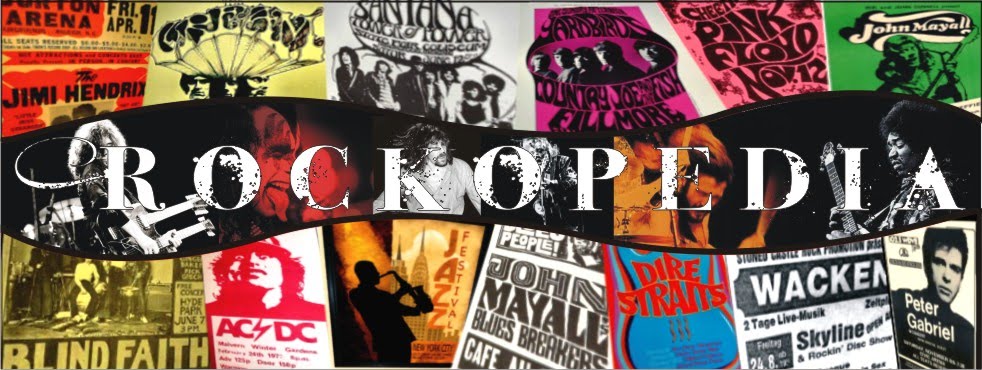POV
>> vineri, 28 ianuarie 2011
A year ago, I wanted to make an experiment and asked some of my friends to write an article every month for my blog. I had some of it planned for some time and it seemed like a good idea. Well, as you can see, it didn’t work. A few days ago, Ana, a very good friend of mine, asked me if she could write something for my blog. She said she had a very good idea on a topic and she remembered my idea. I was sure that she would write something really cool – I knew it since last year when I first told her about it. I wanted some new ideas and feelings on my blog. She said she was going to write a review on Black Swan. Last week I saw the Golden Globe Awards, and that was the first time I heard about the movie. Still, I didn’t have time to see most of the movies that were nominated and Black Swan didn’t really impress me from the trailer that I saw after the Globes.
Ana had a different opinion than most viewers about this movie, which I considered a great thing; I myself have sometimes different opinions about movies, that viewers or critics consider either very good or very bad. But it seems I never had the courage to make a review on a movie, because I never thought it was good enough. I was amazed to read her review. It is just like I would have wanted it to look if I had written it. Ana did a really great job writing this. She had a great ambition to make it look good, and even considered making some changes last night. It sounded familiar. I would have probably done the same thing if I hadn’t liked it the first time. I assure you that both the old version and the new one are just as good, but, as she wished, I will publish the last one.
Thank you Ana!! I owe you one for this great review. I love it!
Subject in Matter
Personal observations and critiques for Aronofsky’s 2010, Black Swan.
To begin to describe it: it is one of the most raved films of the year.
Is it good? Definitely! - we hear it’s up for many awards. Then there’s that 10% who disagree. So maybe the best way to introduce it is as Kunis’ character so charily puts it, “It’s not for everyone”.
The 10 percent have to be the ones who ask themselves ‘What is so great about Black Swan?’ This is a ‘love it’ or ‘hate it’ film. If you love it, nothing will compare to it. Hating it for the right reasons - not just calling it ‘stupid’, makes you a bit more objective.
So what is so great about Black Swan? Naturally people like it because it has a level of absurdity, it revolves around art and it looks like it’s been made by “smart people”. Critics love it because it’s like nothing that’s ever been done before. But different isn’t necessarily good.
The trailer left me with the impression that the film was especially made for the Academy Awards. That didn’t cloud my judgment, though! I wouldn’t go as far as calling it flick load of clichés; but that’s only because a friend was kind enough to tell me calling a movie a cliché is a cliché itself.
I’ll call it a motionless film, far from the end piece it initially aspired to. There is a thin line between striving and trying TOO hard. This is the latter.
Black Swan is a very ambitious movie, but it puts too much effort into a piece that should have been a light blend of melodrama and ballet aesthetics, with a strong focus on the reality of the characters. It simply lacks the right combination of madness and art for the ideal score.
Comparison
Those who are fans of Aronofsky, MUST have seen Requiem for a Dream. Even if the story is different to Black Swan, this is a comparison between the ways stories were built.
Requiem is an exceptional piece of work. The camera is subjective throughout the film and focuses on the evolution (or rather involution) of the characters: what they feel, what they fear to feel and why. It gives you the opportunity to establish a connection with them before they become complete wrecks. (focus on the word “characters”)
This is conviction, a quality of which Black Swan lacks completely.
Natalie Portman’s Nina is a walking nightmare from the first moment we see her. We find here motifs like the scratch on her back, the way people shape-shift around her, talking pictures, paranoia and severe hallucinations. Nina is not a character! She is just a set of obsessive behaviors. All the conflicts that occur in the film are a mere result of her constant complaining – a pointed out fact throughout the film by herself and the characters. Her perpetual terrified state makes for one sorry hero.
Coherence
Another reason why we can’t connect with her is that the movie doesn’t answer the question WHY?
Why is performing so important to her? What does she have at steak?
- If this film is about art, than what is the moral? Become a ballerina and lose your mind? I highly doubt prima ballerinas are paranoid schizophrenics. The constant “tango” between reality and Nina’s imagination becomes quite weary.
Then we get the stylistics - everything is focused on “the looks of it” rather than “the feel of it”, and it makes Black Swan theatricality.
The Characters
Not just Nina, but all the characters are built almost intentionally without either passion or empathy. The mother gave up her dancing career to have Nina, and spends all day long painting freaky portraits in her studio; the director of the ballet company acts as the typical eccentric “man of arts”, who naturally intends to sleep with all his leading dancers; and Lily, the new hot dancer who showed up out of nowhere, is the impersonation of free spirit and happily breaks any rule she can get her hands on.
The purpose of the film was for the audience to sympathize with Nina, but too much of the show is built on her mental illness. The symbolism that characterizes the initial Swan Lake ballet has been kept to in the movie: at the beginning we see Nina wearing light colored clothes and despite her accomplishments so far in her life, she feels repressed and pathetic. But when she starts finding confidence and gives in to her passions, her attitude changes and she literally start wearing black. However, the artificial nature of the characters and surroundings, make this film embarrassingly obvious.
A little something on the juvenile gibberish
What I loved about the film was its good OST; and I must say, Tchaikovsky is the only “character” in the picture you can feel all the way through, and is better outlined than any of the obvious personalities.
However, I am not sure of how good an idea it was to play Tchaikovsky over Nina’s masturbation scene. It was by far the movie’s biggest downside – it made the transition from an insecure drama, horror… whatever it is, to parody. I understand Aronofsky’s ambition to push the boundaries of sanity as far as they go, but this and the hard to define sex scene between Nina and her rival dancer reduces the entire film to an adolescent aberration.
Genre
Has anyone else asked themselves: what is it? Is it a horror, or is it supposed to be artistic? It’s both and neither. So you could call it a fancy-freak show. Even Nina’s physical breakdown, (best example: the bloody nails), has no real dramatic significance. Her character is so repressed and frightened that it looks as though she stopped growing sometime in her childhood (hence all the stuffed animals and name-calling “princess”).
Awards
All this being said, I don’t think it’s the actors’ fault the film turned out this way. I’ve always seen Natalie as quite limited when it comes to acting, but it does look like she puts on quite a struggle to keep up with Aronofsky’s overstated ideas. At one point, she even does a genuine acting performance.
Still, it’s important to specify that the film’s ingenuity isn’t in the acting abilities, but in the authenticity of the ballet performances. Natalie herself had trained for the role for a year or so… and the Academy simply loves to see its actors go through hell for art’s sake; which is probably why she has the best odds to win this year… for her troubles; after all, that’s why they hand out little statues these days anyway.
To sum up, Black Swan is definitely in a class of its own: the only thing standing between the film and its purpose is itself. Perhaps the minority of viewers who simply “aren’t for” Black Swan, are the unlucky ones who can’t ignore the juvenile representations of madness and use of film style that runs from the beginning to the end.





1 comments:
Moral of the movie: Never get too involved in a hobby or passion. You might end up killing yourself. :-)
Great review, Ana.
Trimiteți un comentariu